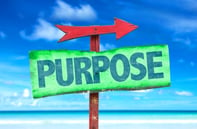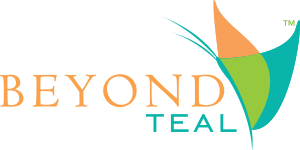
Whenever an idea or concept becomes “conventional” it triggers in me an almost visceral reaction. Perhaps it’s Lee Thayer, a mentor who recently passed, that reminds “conventional thinking leads to conventional results”? Or, is it Joseph Campbell’s “the hero’s path is not on the path”? Or it is just in my nature to be contrarian and suspect of ideas or concepts in vogue. The call to finding your purpose, or your why, has become “conventional”.
It seems like the whole advice giving world is on the “purpose” kick! Even Covid, protests, and daily Trump nonsense doesn’t get in the way. It’s as if we convince ourselves if I can find my purpose, all will be well, nirvana.
“What Happens When You Get What You Want” is the title of a book by Rick Eigenbrod as well as a workshop that he and I facilitated together. It was the most highly rated of the many workshops I’ve ever done. It acknowledged the depths into which one travels after the high of getting what one wants in achieving one’s goal.
There is an equally repeating version “what’s your why”, Simon Sinek, etc. There are so many descriptive adjectives in front of “Purpose” books, lectures, workshops as to rival those for “leadership”. ( Ever wonder why we suck at leadership given how much written advice is available)
This post was triggered by a recent article by my good friend and brilliant colleague Tom McCallum in Tell the world why you are doing what you are doing.
Tom posits the importance of knowing and publishing your purpose/why. In so doing he describes his why. He finds it useful and is admirable and suggests others have their own version. Now, Tom is respected student of humanity as well as a friend, so I paused to jump in, but what the hell. Here goes.
First, a confession that my skepticism about purpose or having one is a new thing. I’ve long ascribed to Lee Thayer’s articulation of the importance of “being had by your(my own)cause”. Indeed, Thayer went even further to say “If your not the servant of you own cause you’ll be the servant of someone else’s”.
I’ve even convinced myself of my own purpose which has been more uncovered or discovered in hindsight rather than formed from forward intention.
My own purpose path was enhanced when after a walk, while on a personal retreat… on a stop in a bookstore as a book of Rilke’s poetry fell open to:
“Do not seek the answers now which will not be given but learn to live the questions, perhaps you will live your way into your answer” etc. ( get the whole quote)
There are several questions for me raised by advising others who know and state their purpose.
First, where does the expectation that one have a stated purpose, leave all the souls that can’t articulate their purpose?
Is it possible that it leaves them better off to explore, live, and observe life in freedom of “what is”. Isn’t a stated purpose actually a limitation on what your life could be? Doesn’t it put a person in conflict with those that don’t share that purpose? Doesn’t adherence to your purpose cloud every action or reaction you take, person you meet, choice you make? Has the deity decided to torment humans with having to come up with our own purpose as kind of pay back for eating the apple in the Garden? Is a panther confused about its purpose. Is it as simple as being human? This leads to:
Second, what is the purpose of humanity? Why are we here? What do we choose to be collectively as a species? Would it count as success if “I” in my particular self achieved my so-called purpose but we as a species fail. Given a current look of the state of things it seems collectively we are making choices that are suspect at best. How does your purpose relate to every other human being choice of purpose? Why are we here? The collection of our individual choices of purpose are being made as particular to ourselves, yet each choice is being made for all of humanity/us. Who thinks about that? If not, why not? It seems, somehow more urgent than ever.
Where does that leave things? For lack of a final answer my provisional answer is that we’re here to be stewards of each other and this place.
What role will you play?
Leaders search for opportunities to change the status quo. They look for innovative ways to improve the organization. In doing so, they experiment and take risks. And because leaders know that risk taking involves mistakes and failures they accept the inevitable disappointments as learning opportunities.
Because these learning opportunities are often the best time for leaders to reach outside their organization for help, Beyond Teal presents: Executive Leadership Guidance


